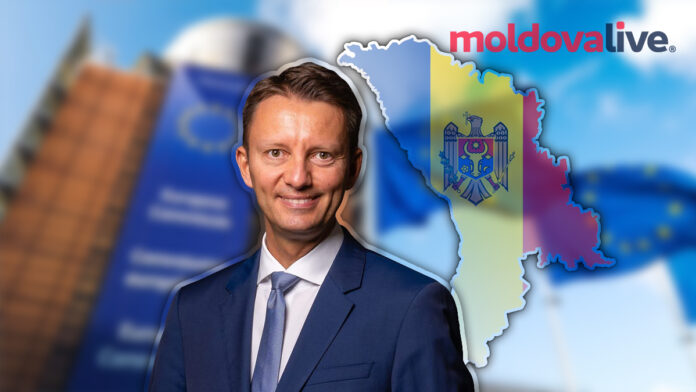Moldova’s EU accession process, EU support, the upcoming Romanian presidential elections, Moldova’s parliamentary elections, and how these votes impact relations across the Prut were key topics in an IPN interview with MEP Siegfried Muresan.
Mr. Muresan, you are visiting Chisinau. What is the purpose this time?
This visit is different. I usually come as chair of the European Parliament’s Delegation for Relations with Moldova to support the EU integration agenda. Now, I’m here ahead of Romania’s presidential elections on May 4. We aim to talk to Moldovan citizens with Romanian passports and voting rights.
“We want to explain the context and the stakes and tell people that the dangers in Romania and Moldova are the same,” Muresan said. “We ask them to vote and protect Romania’s European path, as they did for Moldova during last year’s referendum and elections.”
What are the dangers you refer to?
“Russia and other authoritarian regimes try to weaken liberal democracies,” he said. “They undermine strong, independent institutions at national and European level. They spread distrust in the European way of life – democracy, free speech, free media, and personal freedom – because this model is the opposite of theirs, which builds on hate, division, blackmail, poverty, and threats.”
He mentioned foreign interference in last year’s elections in both Moldova and Romania. “People in Romania are now better informed and prepared. Authorities also now recognize the danger. Being part of the EU, we didn’t expect this to happen. But it did.”
He called for reliable sources of information and warned that even entertainment content could hide disinformation. “Citizens also bear a big responsibility,” he added.
How could Moldova’s parliamentary elections influence the EU path?
“These elections are essential. Moldova now has a pro-European president who gained trust from development partners and secured candidate status, EU support, and financial aid,” he said.
“These achievements were possible because EU institutions saw reliable authorities in Chisinau – a president, prime minister, and government that keep their promises and implement reforms.”
“To continue with the same speed, Moldova needs an ambitious reform agenda and a pro-European government. If there’s a clear pro-European majority, reforms and accession talks will move fast. If not, everything is at risk.”
FOR THE MOST IMPORTANT NEWS, FOLLOW US ON TWITTER!
What about the €1.9 billion EU support package? When and how will Moldova receive the money?
“The EU proposed €1.8 billion last year. I worked to raise it to €1.9 billion. We also raised the pre-financing from 7% to 18% – from €115 million to €315 million,” said Muresan.
“A special EU law for this aid is now in effect. Moldova must present a plan to the European Commission showing what investments and reforms it will make. Once the plan is approved, the €315 million will be transferred, likely by late April or early May.”
“Twice a year, Moldovan authorities will report on progress. If we don’t meet the targets, the Commission can block payments. But the rules are clear.”
What is the breakdown between loans and grants?
“About 20% is non-repayable. The rest are long-term loans at very low interest. Moldova gets them at the same rate the EU borrows, which reduces the burden.”
Why did the EU trust Moldova so quickly?
“First, Moldovan citizens voted for parties that want modernization. Despite Russia’s interference, they chose the EU path,” Muresan said. “Second, after the 2022 invasion of Ukraine, Moldovans opened their homes to Ukrainians in need. It reflected EU values and helped stabilize the EU’s eastern border. That made a big impression.”


